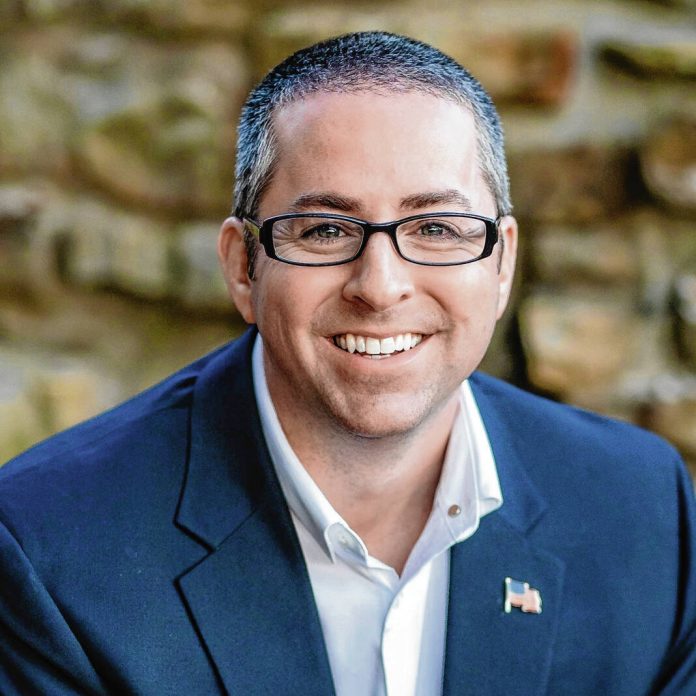A Greenwood City Council member is criticizing county officials’ decision to not opt into additional state health funding.
David Hopper, who represents District 5 on the city’s west side, voiced his opinion about the decision at the end of Monday’s city council meeting during a section reserved for council member comments. Hopper learned of the county’s decision after reading a story about it in the Daily Journal, he said.
“I’m disappointed. I’m discouraged. I’m somewhat angry about it,” Hopper told his fellow city council members. “That is our money. That’s your money and my money. That’s $1.5 million next year that the folks in Johnson County are not going to get.”
The Health First Indiana initiative was made possible by Senate Enrolled Act 4, which added a line item in the budget to bolster funding for local health departments around the state. It gives counties additional funds in exchange for providing enhanced public health services and complying with reporting and metrics requirements, the Indiana Capital Chronicle reported. This legislation was in response to Indiana’s generally poor public health spending rating when compared to states across the country.
Funds will be split between all the counties that opt-in for a share of the money. Johnson County is eligible for between $1.5 million and $2.1 million in 2024 and between $3.1 million and $4.2 million in 2025, according to the Indiana Department of Health.
Earlier this month, county officials said the local health department doesn’t need the extra cash right now, nor the strings attached to it. This was a collective decision made by the Johnson County Board of Commissioners and Johnson County Health Department officials.
“Our health department is already running 95% of what is required within this new bill,” Commissioner Kevin Walls previously told the Daily Journal. “So that’s one of the reasons we dropped out.”
County officials also expressed concerns about how the new state public health program will take shape, and what strings would be attached to funding. Health Department Director Betsy Swearingen said she was concerned it could create more work and headaches for the health department when they already are providing these services in the first place. Growing programs and adding more employees requires planning, and also there needs to be people interested in taking the jobs the funding would add.
There is also no guarantee this funding is permanent since state lawmakers write a new budget every two years. Swearingen said the county does not want to come to rely on these state funds, just to lose those dollars down the road.

Walls said that while the county was opting out of the public health funding now, it doesn’t mean they won’t opt in later. They just aren’t interested in doing it now, he said.
Greenwood City Council member Hopper, who is the director of local health department outreach for the Indiana Department of Health, took issue with county officials’ justification for not opting in during Monday’s city council meeting, including comments that the county health department already provides many of the services required by the bill.
“Every other county does quite a bit too,” Hopper said. “Hamilton County is always the healthiest county in Indiana; they opted in to take funding because they could do more and they realized they could do more.”
He also took issue with the justification that the county is ranked as one of the top 10 healthiest counties in the state.
“Being top 10 in one of the least healthiest states probably is still not much to cheer about,” Hopper said.
The city council could’ve come up with a million different ways to use the $1.5 million, he said. Hopper suggested the funds could be used for Access Johnson County. Since every year the city is asked to help fund the service, he suggested the city stop funding it “since clearly the county has enough money.” The city’s money could instead be used to hire another police officer, he said.
He also encouraged his fellow council members to call or email their commissioners about the decision before the Sept. 1 opt-in deadline for 2024’s funding.
Hopper later clarified in an interview with the Daily Journal that he meant Johnson County Senior Services — not Access Johnson County — when he spoke at the meeting. He also said he “absolutely” stood by the comments he made.
Hopper decided to speak out during the meeting because it was a public forum and it was the easiest way to let the public know about what was happening in the county, he said.
“I suppose I could post something on Facebook, but that probably doesn’t have the reach that public meeting has,” Hopper said.
When referring to Johnson County Senior Services, Hopper said the city council usually allocates somewhere between $60,000 to $80,000 a year to JCSS for the purposes of picking up residents and taking them to medical appointments. Every year, the amount of money allocated increases based on requests, he said.
Even though he had a “slip of the tongue” at the meeting, the Health First Indiana funds in fact could also be used for Access, he said. For example, Access could use it to expand their services to provide free rides to medical appointments for the elderly, disabled, low-income and “other mobility disadvantage” persons, Hopper said.
The funds could also address infant mortality, tobacco cessation and prevention or the creation of a paramedicine program. Ten percent of the funds are also eligible to be put toward buildings, land and vehicles — which could have offset the cost of the under-construction health department and coroner’s office building, he said.
Hopper says it doesn’t have to be the county that provides the services made possible either. The funds could be granted to Johnson Memorial Health or Windrose Health to provide services, as an example, he said.
By not opting into the Health First Indiana initiative, the funds will instead be reallocated to other counties — like Marion County, he said.
“I find it hard to believe that in an act of fiscal responsibility, our commissioners will say, ‘I will give the money to Marion County who will act more fiscally responsible with the money and use it for good than we could here in Johnson County,’” Hopper said.
When asked if it was a conflict of interest to speak as a city council member about Indiana Department of Health business, Hopper said that while it is possible people could see a conflict, he was acting in his capacity as an elected official when he made the comments.
He said he wasn’t promoting an agenda of the state department of health, but rather “what should be the agenda of all Hoosiers”: better health outcomes.
“Wanting to use the money here in Johnson County for the benefit of Johnson County, for better health, I wouldn’t call that as a conflict of interest,” Hopper said.
When asked for a comment in response to Hopper, Walls said Friday he had no comment other than that officials should “let the plan roll out and see how it rolls out.”





